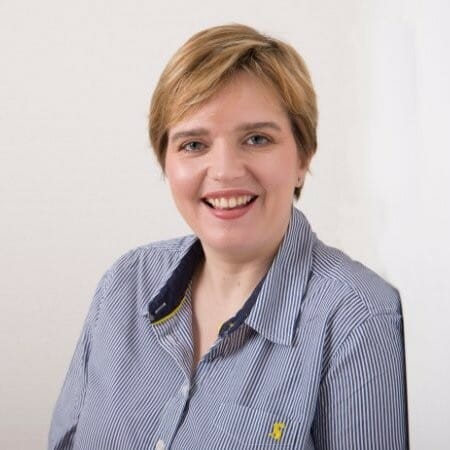Sally Eaves, official member of the Forbes Technology Council, will be participating in the upcoming second webinar for the Responsible Technology Series in partnership with Salesforce and NTT, The Future of Responsible on the 21st October at 10:00am, as part of a panel session entitled ‘Emerging from the Pandemic Responsibly’.
The virtual event will address the challenges that the tech sector faces, how it can emerge from the pandemic responsibly, and the responsible tech innovations that will take centre stage in the coming years. You can find more information and register for the event here. Registration is free of charge.
What would you say are the biggest challenges that the pandemic has posed to organisations, when it comes to delivering value responsibly?
What the pandemic has shown, for me, is that we can’t just have technology literacy; we need digital literacy as well. I think it’s shown where we’ve got digital equity gaps, so we need to address that, but even where we have got more equal access to technology, we need to invest more in education around literacy skills to give people that confidence and adaptability to use it as well.
Closing the gap: the digital productivity puzzle
I think accessibility, digital literacy and tech literacy all go hand in hand, and I always talk about technology and education being together, and I think that’s really come to the fore over this time.
Embedding transparency, sustainability and trust is also absolutely vital; whether it’s government or supply chains, we’ve seen where the fragility is, so embedding those aspects, along with AI and ethics, is a challenge, but also an opportunity.
As a technology leader, how have you gone about ensuring that technology is used responsibly and ethically, and promoted the importance of this?
Firstly, I have my own non-profit called Aspirational Futures, and we invest in STEAM education, so STEM but with the arts on an equal stage. We do a lot of activity around that, so it’s about embedding that knowledge and skills base, and particularly I’m reaching out to underrepresented population groups, and looking to build that diversity, experience and confidence to enter into tech careers. We do a lot of work in that area, and we also scale around global tech for good projects, with physical hubs, but everything is digital in that area.
We work with schools and universities, but also with older adults who may need to reskill or upskill, and the other thing we do is repurposing data. 90% of data at the moment is archived and never touched again, so I think a lot can be done there to reuse that data and address skills gaps in areas such as AI, cyber security and blockchain.
What the Prime Minister’s ‘Lifetime Skills Guarantee’ means for UK tech
Personally, I do a lot of advisory activities, and I have a new book on this which comes out next year on the work I do in areas like 5G, which I think is absolutely fundamental, because going back to that challenge of repurposing data, if you don’t have that underpinning pillar of access, none of those things around emerging tech work. I’m heavily involved in 5G, as well as blockchain, AI, drones, and using tech in a variety of ways for good, particularly within healthcare and climate change.
Could you please talk me through the panel session that you’ll be participating in during the Future of Responsible event?
What I love about this panel session is we’re bringing people together with a broad breadth, depth and diversity of experience, so I think it’s going to be really energising for the audience.
We’re bringing together education, emerging technology, different industries and having a very enriching discussion, and trying to bring out some practical applications. It’s not just talking about how we can build responsible tech, but also real examples of where that’s happening, how we can scale it and how we can sustain it. I think there will be some really valuable takeaways from this particular panel.
I’m not just contextualising things, it’s all about the action, and I think there’s a real willingness and energy on this panel to do things. I think people will find things that they can follow up on, get involved in themselves, and apply within their own organisations.







